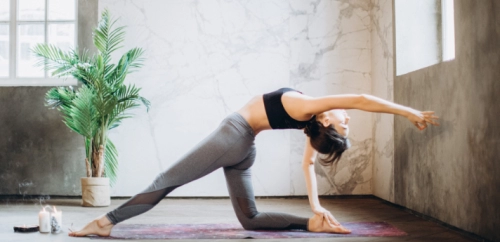How Does Mindfulness Change Your Life?

Mindfulness has found its place in many people's lives due to its many benefits on our mental well-being, and its ability to improve our overall quality of life. Though many people have heard about the term mindfulness, it may not be clear how mindfulness can change your life or what it even is.
Mindfulness can help you feel more in the present moment. It can help you reduce stress, anxiety, negative emotions and thoughts, and give you a better sense of mental control and understanding about life and the people in it.
Though it is a well-known practice in many cultures and traditions, many people may not quite understand what mindfulness actually is.
Many people directly relate mindfulness to meditation. While meditation is one form of mindfulness, it's important to understand that mindfulness has many different methods and practices and that meditation is just one of them.
What is mindfulness?
Mindfulness is the practice of connecting to the present moment by accepting and letting go of thoughts and fears about the past, future, and the present.
By accepting and letting go of the past, you can let go of any demons that still haunt you and any negative feelings about things that you did or did not do.
By not worrying about the future, you can let go of any fears you may have about what could be or what should be.
Questions such as "what if…?" can more easily be removed from your stream of thoughts.
Being in the present moment means that you are better able to achieve a calmer sense of being, since you will no longer constantly be thinking about past events and future possibilities. Not worrying about those things can help reduce the stress and anxiety that accompanies those thoughts, leaving you in a state of calmness and understanding.
What types of mindfulness practices are there?
While meditation is the most common and the most well-known type of mindfulness practice, some other practices and exercises can be explored that may work better for some. Many of the exercises can also be combined to achieve an even greater effect, but even starting with just one exercise for just a few minutes a day can have great benefits.
Here are just a few of the many different mindfulness practices:
- Meditation
- Journaling
- Body scanning
- Gratitude practice
- Actively listening
- Breathing exercises
A more detailed explanation of different practices and exercises can be found here: Daily Mindfulness: How Can It Help You Slow Down & Be In The Present
Which type of mindfulness practice should I start?
The mindfulness practice you choose to do is up to you, as there is no general rule. Different mindfulness exercises work for different people.
If you have the option, and will, to explore the different exercises, you may find that there is one particular mindfulness exercise that works better for you than any of the others. You may also find that multiple mindfulness exercises work great for you when combining them.
Whichever mindfulness exercise you feel has the best effect is usually the best one for you. It's important to give each exercise time so that you can actually understand if it's working for you or not. Consistency is crucial when it comes to mindfulness.
The longer you keep up with this practice, the greater the benefits will be. Meditating once for 30 minutes will probably not provide nearly any benefit, but meditating every day for 5 minutes can really make a huge difference.
Give it time, this is important!
Starting a mindfulness practice is a great way to connect with yourself on a deeper level and learn how to stay calm, aware, and mindful of the different aspects of your life.
But just like many great things in life, it takes time.
Learning how to be mindful, to stay calm in difficult situations, and everything else that comes with mindfulness, takes time and practice. Mindfulness, just like meditation, is not a miracle that happens overnight.
It is a practice, and just like other practices and exercises, it takes time to get the results you are looking for.
As you progress with your mindfulness practice, you will begin to see the results of the practice more and more in your daily life.
If you rush into the practice, expecting it to heal and cure everything overnight, you may not fully understand the way mindfulness works and may be risking a quick burnout.
Giving your mindfulness practice some time is crucial to actually reaping the benefits it can provide.
Don't overdo it!
It's quite easy to overdo it when it comes to mindfulness practices.
If you find that meditation is the route you want to take and that meditation is what works best for you, don't overdo it by trying to sit each session for 30 minutes. This is the fastest and easiest way to experience burnout and possibly lose all motivation for the practice.
Starting a meditation practice by trying to sit in meditation for 30 minutes each time may be possible at first, but, you may find yourself quickly getting tired of this practice and may even give it up eventually.
To begin mindfulness practices, you don't need to go all out. Starting with short sessions, in the beginning, can be the better way to go.
Starting with short 5-minute meditation sessions can be much better for the overall practice rather than starting with a 10-20 minute session.
Mindfulness is a practice similar to physical exercise. We need to get used to it, and we need to practice it. Even if it seems simple, we cannot push it too much and try to rush things, otherwise, we risk not making the practice last very long.
Learn more about mindfulness
There is an endless amount of information and knowledge available to anyone with an internet connection.
There are many mindfulness blogs and communities, such as this one here at Divuni Mindfulness.
If you are looking into starting a mindfulness practice but still want more information or have questions, start looking around the internet. Read blogs and forums. They are usually full of like-minded people who may have years of experience in mindfulness and can share some amazing insights, tips, and knowledge.
For more mindfulness articles, you can head on over to our Mindfulness & Meditation topic page and read more articles on the subject.














